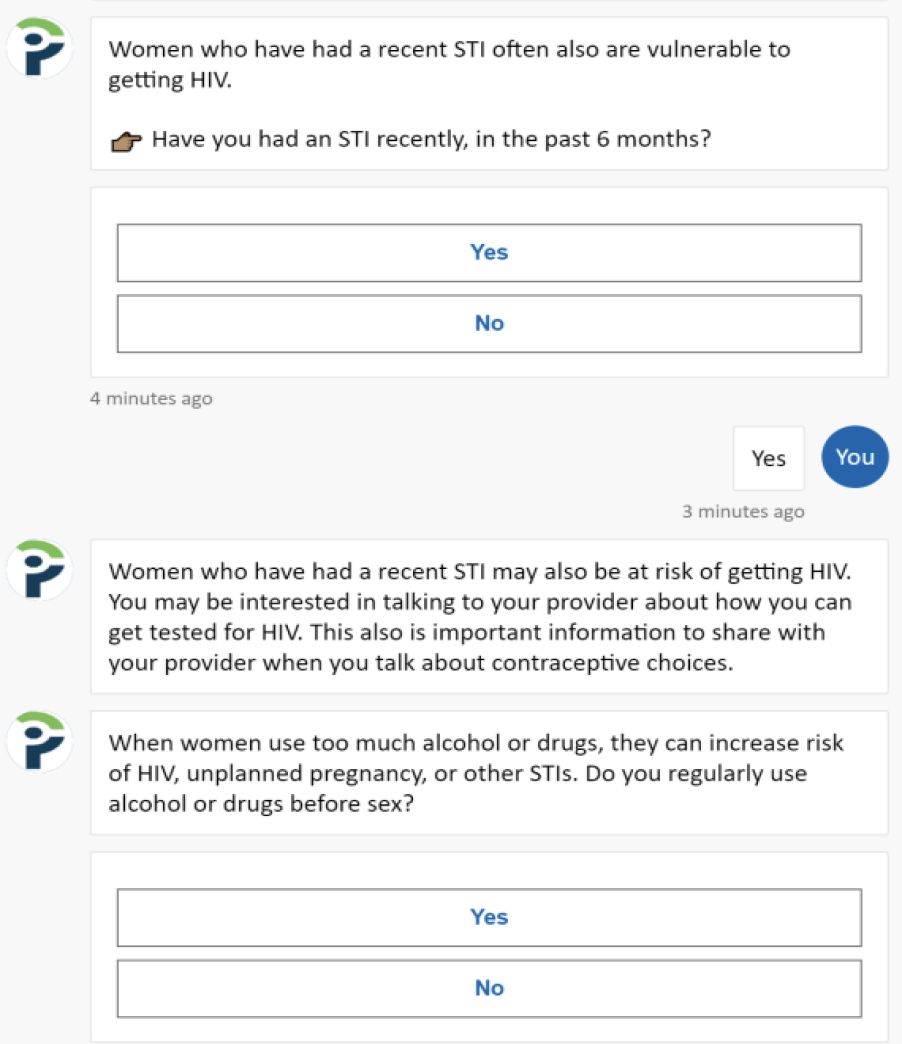
A web-based digital chatbot, offered in healthcare waiting rooms, can help women assess their contraceptive choices and vulnerability to HIV. Given time and resource constraints in providing health care globally, this self-care and self-learning approach also supports healthcare systems to deliver services.
Women who seek family planning services at a clinic are looking for assistance with their reproductive choices. Women who are at risk for unplanned pregnancies could also be vulnerable and at risk for contracting sexually transmitted infections, such as HIV. While women may go to clinics to talk with a provider about contraceptives, they may not necessarily be thinking about their risk for contracting HIV.
In Zambia, the Population Council developed an interactive chatbot to inform clients not only about their contraceptive choices but also about methods to prevent HIV. Some options offer dual protection against pregnancy as well as disease. However, since clients may not know about their options, the chatbot can provide that information to them while they wait to see their provider at the clinic to discuss their reproductive health options.

A chatbot is a software application that simulates having a conversation with a human. The ADVICE chatbot was a series of text exchanges, by which users selected responses to scripted questions, with automated content generated in response to their answers.
The chatbot was developed iteratively in three languages—first English and then it was translated into Bemba and Nyanja—and tested for ease of use. Then, women with at least basic literacy were selected to participate in using the chatbot while they waited for their appointment. Women aged 15 to 49 were screened for this test run, 54 were identified to participate, and 30 of those participants completed the chat and the exit survey.
The response to the chatbot deployment test was positive. Among the testers who completed the exit checklist after seeing the provider:
- 100% agreed that the information in the chat helped them think about how to protect from pregnancy as well as HIV;
- 96% spoke to the provider about HIV because of what they learned in the chat;
- 83% learned new information about HIV from the chat; and
- 83% learned new information about family planning from the chat.
About two-thirds of participants learned about pre-exposure prophylaxis (PrEP) for the first time. Awareness of PrEP is an important tool in HIV prevention, and women subsequently used this new knowledge to explore options with their healthcare provider.
The chatbot was developed as part of the Advancing Integrated HIV/Family Planning Counseling with Evidence (ADVICE) project supported by the Bill & Melinda Gates Foundation.
Learn more:
